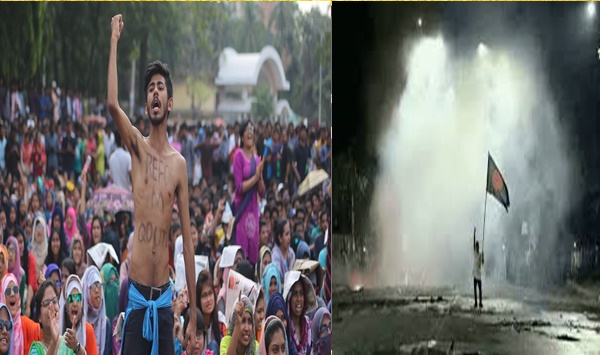Paragraph about Quota Movement
In the public sector in Bangladesh, job reservations for specific disadvantaged groups have existed since independence. The most recent quota system, which included provisions for up to 56 percent of jobs going to those who fall under various quotas, was abolished for first- and second-class jobs in 2018 following a government circular. Previous quota systems, however, reserved an even higher percentage of jobs for various groups. After 1971, the quota system was carried over and amended to reflect the needs of the newly independent Bangladesh. In 1972. In this initial quota system, 30 percent of the jobs were reserved for freedom fighters, 10 percent for affected women from the Liberation War, and 40 percent for people of various districts. This left a 20 percent allocation on merit for recruitment to government jobs. In 1976, the district-based allotment was reduced to 20 percent, and 40 percent of the jobs were reserved for those qualifying on merit. In 2018, following nationwide protests against this quota system, a government circular cancelled the quota system for first- and second-class jobs. However, on June 5, 2024, the High Court ruled on a writ petition filed by the descendant of a freedom fighter and six others. The HC said the 2018 circular was illegal, meaning quotas were re-established in government recruitment once more. The government has appealed this ruling. Students have once again engaged in large-scale protests, demanding a reform of the quota system. Sweeping blockades across the country have created difficulties for everyday people. The appeal hearing on the High Court ruling is set to take place on Wednesday, July 10. So, of course, the protest movement might not remain the same as when it started, with the agenda of reforming the quota system alone along with demolishing the autocratic government. Finally the will of the present generation establish whereas the Ex-Prime Minister was bound to escape after resigning from the post. To conclude, Bangladesh is facing a unique situation at present. The government announced a nationwide day of mourning on 30 July to honour those who lost their lives in the recent violence.

